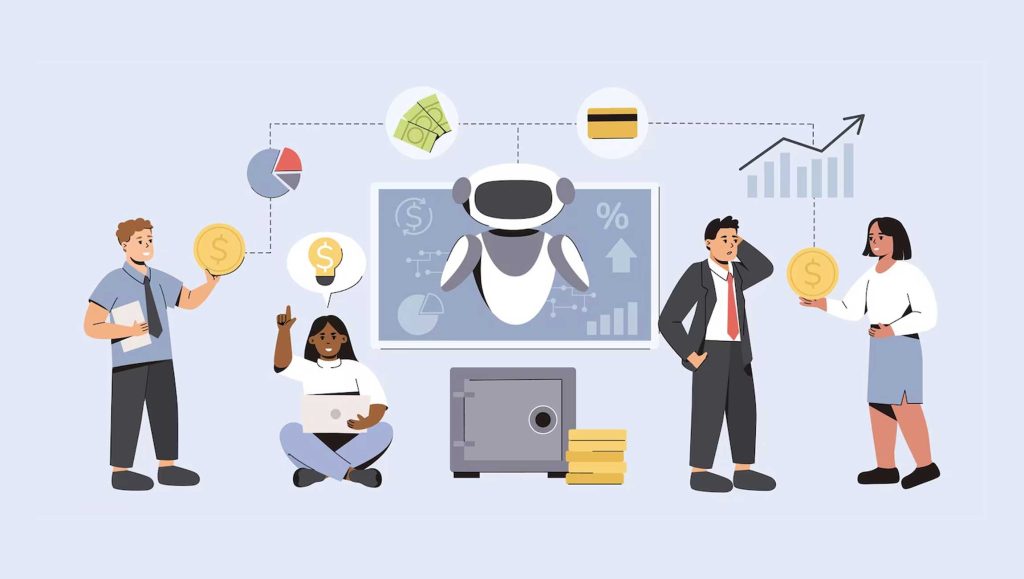The role of sales technology has become paramount in the modern business world. One such technological marvel that has gained significant traction within the salestech subset is the Sales Intelligence Series of Tools. These tools have evolved from rudimentary Customer Relationship Management (CRM) systems to advanced platforms powered by Artificial Intelligence (AI). They have transformed the sales and salestech landscape, enhancing productivity and effectiveness. This blog explores the evolution of these tools and their impact on end to end sales operations.
The Journey of Sales Intelligence: From CRM Systems to AI-Driven Platforms
Sales intelligence has come a long way since the inception of CRM systems, which marked the first step in this journey. These systems brought a paradigm shift in the sales landscape, offering a structured way to manage customer interactions. However, they were limited in their capabilities, providing only basic data storage and analytics.
The introduction of Artificial Intelligence (AI) in salestech marked a significant milestone. AI began to transform the sales landscape, offering real-time insights and predictive analysis. Early AI-driven platforms like Einstein from Salesforce and Zia from Zoho started to make a mark, enhancing sales productivity and effectiveness by providing intelligent insights and automating routine tasks.
Read More: SalesTechStar Interview with Vincent Paquet, Chief Product Officer at Dialpad
Generative AI: Transforming the Sales Landscape
The emergence of generative AI has been a game-changer in the sales landscape. It has not only enhanced the efficiency of sales processes but also personalized customer interactions, leading to improved sales outcomes.
1. Efficiency:
Generative AI has revolutionized sales by automating routine tasks. This automation allows sales representatives to focus on strategic activities rather than mundane tasks. The result is a significant increase in overall efficiency, leading to improved sales performance and productivity.
2. Personalization:
Generative AI has the ability to generate personalized content based on customer data. This capability enables highly tailored interactions with customers, enhancing their engagement and satisfaction. It ensures that every communication is relevant and resonates with the customer’s specific needs and preferences.
3. Predictive Analysis:
One of the standout benefits of generative AI is its ability to provide predictive insights. These insights help sales teams anticipate customer needs, enabling them to strategize effectively. This proactive approach allows sales teams to stay one step ahead, improving their ability to close deals.
4. Data Utilization:
Generative AI has transformed the way sales data is utilized. It can process huge volumes of raw data and transform it into actionable insights. These insights help sales teams understand market trends, customer behavior, and sales performance for data-driven decisions.
5. Sales Forecasting:
Generative AI has greatly enhanced the precision of sales predictions. It examines past sales information and current market patterns to forecast upcoming sales with remarkable accuracy. This assists in making more informed decisions and preparations, ensuring that sales teams are ready for what’s to come.
6. Customer Retention:
Generative AI plays a crucial role in customer retention. Providing personalized experiences and proactive service helps build strong relationships with customers. This not only improves customer satisfaction but also increases customer loyalty, leading to long-term business success.
AI-Driven Platforms: Boosting Sales Productivity and Effectiveness
AI-driven platforms have significantly increased sales productivity and effectiveness. They have automated tedious tasks, provided valuable data insights, and improved lead generation, thereby enhancing the overall sales process.
Here are the prominent examples of how famous brands have leveraged AI within their salestech offering:
1. Salesforce:
Salesforce’s AI tool, Einstein, automates data entry tasks, provides predictive insights, and helps in lead scoring, thereby increasing sales productivity.
2. IBM:
IBM’s Watson provides valuable insights from unstructured data, helping sales teams understand customer needs better and tailor their approach accordingly.
3. Microsoft:
Microsoft’s Dynamics 365 AI for Sales provides actionable insights, helps prioritize leads, and personalizes customer interactions, thereby improving sales effectiveness.
4. Zoho:
Zoho’s AI assistant, Zia, automates routine tasks, provides sales forecasts, and helps identify the best time to contact a prospect, thereby enhancing sales productivity.
Sales Intelligence: A Glimpse into the Future
The future of sales intelligence is poised for exciting developments. With the rapid advancements in technology, sales intelligence tools are expected to become more sophisticated and intuitive.
1. Predictive Analytics:
Future sales intelligence tools will likely leverage advanced predictive analytics to provide more accurate sales forecasts. This will enable sales teams to strategize more effectively and achieve their targets.
2. Automation:
The level of automation in sales processes is expected to increase, with AI taking over more routine tasks. This will free up sales representatives to focus on more strategic activities.
3. Integration:
We can expect to see more integration between different sales tools, providing a more seamless and efficient sales process.
4. Personalization:
As AI becomes more advanced, the level of personalization in customer interactions is expected to increase, leading to improved customer satisfaction and loyalty.
Ongoing research in AI and machine learning is continually pushing the boundaries of what sales intelligence tools can do. As these sales technologies evolve, we can expect to see even more innovative features and capabilities in future sales intelligence tools.
Read More: Mastering the Art of Event-led Growth





















